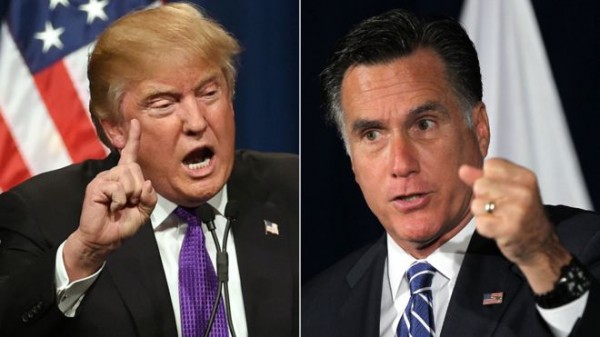
Some Donald Trump supporters are warning that naming Mitt Romney as secretary of state will antagonize much of the president-elect’s base.
The base thinks Mr. Romney represents an interventionist foreign policy that Mr. Trump rejected repeatedly during the campaign.
Mr. Romney “would be a terrible choice,” said former Texas Republican Party Chairman Tom Pauken. “His foreign policy views are in total conflict with Trump’s. He will bring terrible people with him to State. His selection will do Trump much more harm than good with Trump’s supporters. It sends exactly the wrong signal.”
“Romney would hire all those who brought us the Iraq War, Libya and drone-bombing Africa,” Mr. Pauken said. “And he would deeply demoralize Trump supporters.”
Anthony Salvia, who served in the State Department under President Reagan, predicts there would be no rhyme or reason to a Romney-run foreign policy.
“It’s hard to imagine Romney saying the kinds of things Trump has said regarding interventionism and politics in general,” Mr. Salvia said. “If you look at what Romney’s said, he’s more in line with traditional Republican foreign policy rather than the major change Trump campaigned on.”
Mr. Trump’s transition team has floated the former Massachusetts governor’s name for appointment to the post, and the two men met privately over the weekend in New Jersey.
Some in the tea party movement and some prominent conservative Republican stalwarts don’t trust Mr. Romney to hew to Mr. Trump’s views on a number of policy issues that were central to his upset victory Nov. 8.
“I trust Donald Trump’s decision-making, but I don’t trust Mitt Romney policy views,” said Cleveland Tea Party founder Ralph King. “I think Romney will actually work against Trump on trade, good relations with Russia, avoiding wars in the Middle East. Trump can fire him, but will he want to do that?”
Mr. King said firing a top Cabinet official gives ammunition to the president’s enemies.
“I understand why people say, ‘Keep your friends close and your enemies closer,’ but you don’t want to give them a gun to shoot you with, politically speaking,” Mr. King said.
Mr. Trump has emphasized trade deals that treat the U.S. fairly, comity with Russian President Vladimir Putin, skepticism toward NATO’s post-Cold War relevancy and military interventions abroad only when U.S. vital interests are in clear and imminent danger.
Robert Schadler, senior fellow in public diplomacy at the American Foreign Policy Council, said that of the top four Cabinet-level appointments — State, Defense, Justice and Treasury — “State is most easily ‘trumped’ by the White House (by way of the president’s National Security Council). So, foreign policy can be run mainly from the White House more easily than the other three.”
But that assumes a president new to the foreign policy world appoints to his National Security Council people who fully share his broad foreign policy views.
“The pluses of a Romney appointment are that he has supporters who are anti-Trump,” Mr. Schadler said. “Trump would show he is willing to overlook rather vicious attacks on him and look forward. A Romney would calm many foreign leaders who are anxious and suppress some domestic criticism by the press and Democrats of his overall selections.”
But, he added, “Romney does not know all that much about foreign policy, he has his own supporters, he could resign in a huff and might want to pursue his own views on foreign policy rather than those of Trump,” Mr. Schadler said. “Finally, Romney disappoints Trump supporters, many of whom think Romney a kind of ninny.”
Mr. Romney has support among some in the foreign policy community, but critics fear he will fill the State Department with the kinds of establishment Republicans Mr. Trump campaigned against.
“Romney’s a practical politician, so he’s as suited as anyone to forge a foreign policy that fits both Trump’s instincts and world realities,” said Philip Peters, president of the Cuba Research Center. “The next secretary of state’s first job will be to anchor our foreign policy to realities ignored in the campaign.”
“Those ‘realities’ are that the Russians in Syria are not primarily fighting [the Islamic State group], the NATO treaty is a real obligation, leaving the Trans-Pacific Partnership will delight China and hurt U.S. exporters, and suspending NAFTA will hurt the Mexican economy and increase illegal immigration,” Mr. Peters said.
The ultimate question, said Mr. Pauken, is: “How you take on Wall Street insiders and Republican elites by picking the ultimate embodiment of that class for your secretary of state?”
WASHINGTON TIMES

Leave a Reply
You must be logged in to post a comment.